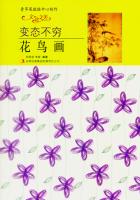From this is it clear why the genus, the difference, and the species are related proportionally to the matter, the form, and the composite in nature, although they are not the same as these things. For, the genus is not the matter, though it is taken from the matter as signifying the whole; nor is the difference the form, though it is taken from the form as signifying the whole. Thus we say that man is a rational animal, but not composed of the animal and the rational in the sense that we say that man is composed of soul and body: man is said to be composed of soul and body as from two things from which a third thing is constituted different from each of the two. Man, surely, is neither body nor soul. But if man is said in some sense to be composed of the animal and the rational, it will not be as a third thing composed from these two things, but as a third concept composed from these two concepts. The concept of animal is without determination of a special form and expresses, with respect to the ultimate perfection, the nature of the thing from that which is material; the concept of the difference, rational, consists in the determination of the special form. From these two concepts are constituted the concept of the species or the definition. Thus, just as a thing constituted from other things does not have predicated of it these other things, so too a concept does not have predicated of it the concepts of which it is constituted: clearly, we do not say that the definition is either the genus or the difference.
Although the genus may signify the whole essence of the species, nevertheless there is not just one essence of the various species under one genus, for the unity of the genus proceeds from its very indetermination or undifferentiation.
Nor is it the case that what is signified through the genus is numerically one nature in the various species such that to it there supervenes some other thing, which is the difference that determines it, as a form determines matter, which is numerically one. Rather, the genus signifies some form (though not determinately this one or that one), which the difference expresses determinately, the very one that is signified indeterminately through the genus. And thus the Commentator says in Metaphysicae XII, [[4]] com. 14, that prime matter is called one by the removal of all forms, but the genus is called one through the commonality of forms signified. Hence, the indetermination, which was the cause of the unity of the genus, having been removed through the addition of the difference, the species remain essentially diverse.
Furthermore, since, as said above, the nature of the species is indeterminate with respect to the individual just as the nature of the genus is with respect to the species, and since, further, the genus, as predicated of the species, includes in its signification (although indistinctly) everything that is in the species determinately, so too does the species, as predicated of the individual, signify everything that is in the individual essentially, although it signifies this indistinctly. In this way, the essence of the species is signified by the term man, and so man is predicated of Socrates.
If, however, the nature of the species is signified in such a way as to exclude designate matter, which is the principle of individuation, then the species is related to the individual as a part; and this is how the term humanity signifies, for humanity signifies that by which a man is a man. Designate matter, however, is not that by which a man is a man, and it is in no way contained among those things that make a man a man.
Since, therefore, the concept of humanity includes only those things by which a man is a man, designate matter is excluded or pretermitted, and since a part is not predicated of its whole, humanity is predicated neither of man nor of Socrates. Thus Avicenna says, Metaphysicae V, cap.
5, that the quiddity of a composite thing is not the composite thing of which it is the quiddity, even though the quiddity itself is composite, as humanity, while composite, is not man. On the contrary, it must be received in something that is designate matter.
But since, as said above, the designation of the species with respect to the genus is through the form, and the designation of the individual with respect to the species is through matter, the term signifying that from which the nature of the genus is taken thus excludes the determinate form that completes the species and signifies the material part of the whole, as the body is the material part of the man. However, the term signifying that from which the nature of the species is taken, excluding designate matter, signifies the formal part. Thus, humanity is signified as a certain form, and it is said that it is the form of the whole, not, certainly, as a form superadded to the essential parts (the form and the matter), but rather as the form of a house is superadded to its integral parts;and that is better called the form which is the whole, in other words, that which embraces the form and the matter, albeit excluding those things through which the designatability of matter arises.
Therefore, the term man and the term humanity both signify the essence of man, though in diverse ways, as said above. The term man signifies the essence as a whole, in other words, insofar as the essence does not exclude designation of matter but implicitly and indistinctly contains it, in the way in which we said that the genus contains the difference. Hence, the term man is predicated of individuals. But the term humanity signifies the essence of man as a part because it contains in its signification only what belongs to man insofar as he is man, and it excludes all designation, and so it is not predicated of individual men. And for this reason the term essence is sometimes found predicated of the thing, as when we say that Socrates is a certain essence; and sometimes the term essence is denied of the thing, as when we say that the essence of Socrates is not Socrates.















